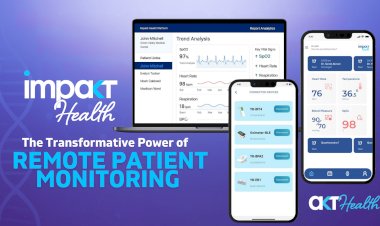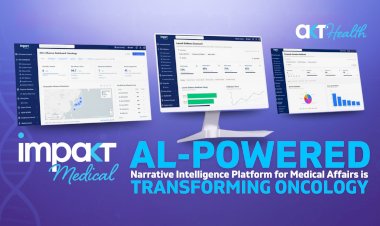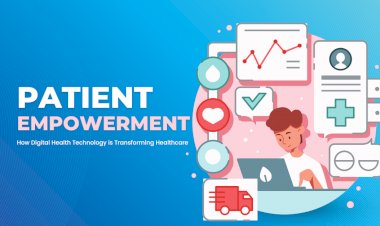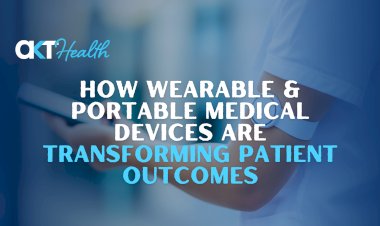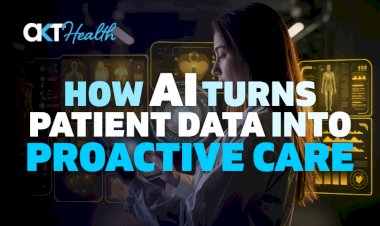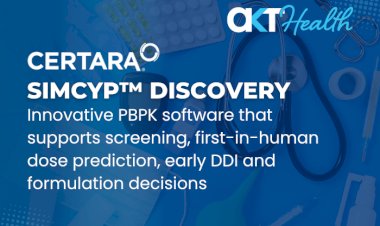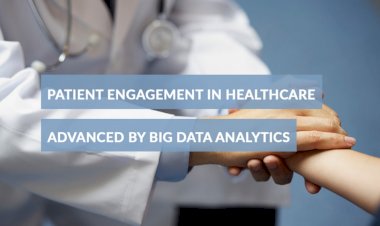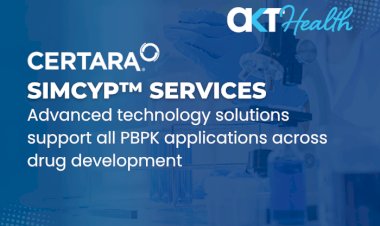Smart Hospitals Are Redefining Healthcare With Intelligent Digital Infrastructure and Connected Care Ecosystems
Discover how AKT Health is powering the next wave of smart hospitals through AI, interoperable data ecosystems, decentralized trials, and patient-centric digital infrastructure that improves outcomes and sustainability.
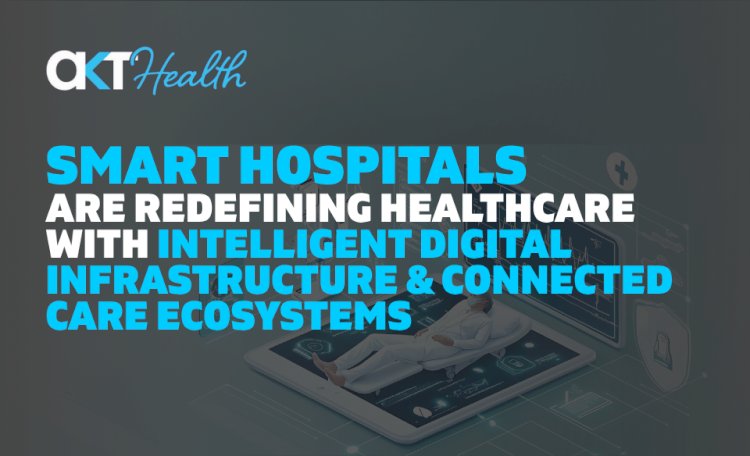
From Digital Hospitals to Intelligent Ecosystems
Healthcare is entering an age where connectivity defines capability. Across the world, hospitals are transitioning from isolated clinical centers into intelligent, learning ecosystems, where data moves securely, insights emerge in real time, and systems adapt continuously.
According to Precedence Research (2025), the global smart hospital market is projected to exceed USD 210 billion by 2033, growing at a CAGR of 11–12%.
This transformation is being fueled by:
- National strategies such as Japan’s Digital Health Acceleration Plan, Saudi Arabia’s Vision 2030, and India’s ABDM framework.
Governments are setting the pace:
- Japan’s Digital Health Acceleration Strategy (2024) mandates AI-based hospital automation and EMR interoperability.
- Saudi Arabia’s Vision 2030 targets > 20 fully digital tertiary care hospitals.
- India’s Ayushman Bharat Digital Mission (ABDM) connects > 500 million citizens through unified health IDs.
- EU and UAE are enforcing cybersecurity and RWE frameworks for connected care networks
- Technological convergence of AI, IoT, and analytics within clinical environments.
- Growing focus on patient safety, sustainability, and data transparency across global health systems.
But as hospitals adopt connected systems, data fragmentation, cyber risk, and workflow disparity threaten to slow progress.
The real challenge is not digitization, it’s about integrating, securing, and scaling it sustainably.
That’s the mission of AKT Health: to design intelligent digital infrastructure that connects clinical science, real-world evidence, and patient experience into one trusted network.
What Defines a Smart Hospital in 2025
A smart hospital is more than a collection of connected devices. It is a cognitive, adaptive system designed to unify data, intelligence, and human judgment.
The next-generation hospital is not defined by technology alone; it’s defined by its ability to learn, respond, and evolve.
The Hidden Infrastructure Problem
Despite rapid digitization, 70 % of hospitals still operate on legacy, siloed EHRs (Healthcare IT News 2025).
Common failures include:
- Centralized databases as single points of failure
- Incompatible vendor software is preventing real-time data sharing
- Unsecured IoT devices are becoming entry points for cyberattacks
- Manual processes are causing data loss and clinical delays
In 2024 alone, 276 million health records were breached, costing the industry USD 7.5 billion in losses (IBM Security, 2025).
Each incident isn’t just a privacy loss; it’s a patient safety issue.
These vulnerabilities highlight the urgent need to build hospitals that are both digital and dependable. The backbone must shift from centralized control to a distributed digital trust infrastructure that guarantees data authenticity, interoperability, and continuity of care.
The AKT Health Approach: Building Digital Trust Architectures
At AKT Health, the vision for next-generation healthcare lies in converging intelligence, interoperability, and governance within a unified digital framework. Rather than focusing on isolated tools, the emphasis is on creating system-level resilience, where data moves securely, insights flow continuously, and compliance is embedded by design.
AKT Health’s strength lies in integrating services, solutions, and products to create resilient hospital ecosystems.
Key Layers of the Future Digital Infrastructure
This architecture ensures that care delivery evolves in tandem with research, regulation, and patient empowerment.
Case Studies and Learning Insights
-
- Japan | National Interoperability and AI Integration
Japan’s Ministry of Health has accelerated digital hospital upgrades through the implementation of standardized data exchange protocols and AI-driven clinical support systems.
Hospitals using interoperable platforms have reported a 25–30% reduction in administrative load and improved real-time decision-making capabilities.
-
- Saudi Arabia | Vision 2030 Smart Health Corridors
The Kingdom’s Vision 2030 program has enabled smart care facilities with integrated IoT monitoring and data warehousing centers.
Early results show faster emergency response times (↓40 %) and enhanced population-level data analytics for public health planning.
-
- India | ABDM and Unified Health Records
Through the Ayushman Bharat Digital Mission, India is linking patients, providers, and payers via a national digital health ID system.
Hospitals adopting the framework have achieved real-time access to records across regions, enhancing continuity and reducing duplicate testing by up to 15 %.
-
- Europe | Real-World Data for Policy and Value-Based Care
Across Germany and Nordic nations, integration of real-world data with clinical operations has enabled evidence-based reimbursement models and accelerated post-market safety reviews.
These initiatives demonstrate that digital infrastructure is not just an IT upgrade; it’s a strategic pillar for public health resilience.
“The future of care is not about devices or dashboards; it’s about decisions made faster, smarter, and more ethically through connected systems of trust.” — Hema Dubey, CMO, AKT Health Inc.
As healthcare evolves into a data-centric ecosystem, the true advantage will belong to systems that can think, connect, and act as one, integrating clinical intelligence, operational agility, and patient trust.
AKT Health is committed to building that bridge between innovation and impact, ensuring that digital transformation doesn’t just introduce technology, but delivers measurable, lasting outcomes for patients and providers alike.
The next generation of hospitals will not simply treat, they will predict, prevent, and personalize care through digital intelligence.
By aligning clinical data, governance, and real-world evidence, AKT Health is laying the foundation for a global healthcare ecosystem where technology serves outcomes and data serves humanity.
Our framework is guided by four enduring principles that shape every initiative we design:
- Unified Data Ecosystem: Breaking silos between clinical, operational, and outcomes data for continuous learning.
- AI Readiness by Design: Embedding analytical and predictive capabilities into every layer of healthcare delivery.
- Governance and Compliance: Upholding the highest international standards of data privacy and ethical care.
- Sustainability and Scalability: Building digital infrastructure that grows responsibly and endures over time.
Because the future of healthcare isn’t defined by how much data we collect, it’s defined by how intelligently and ethically we use it.








